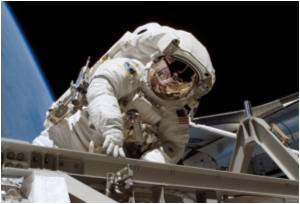
Silvia Bradamante, a researcher involved in the work from the CNR-ISTM, Institute of Molecular Science and Technologies in Milan, Italy, said that understanding the cellular and molecular events of senescence might help in finding preventive measures that are useful to improve the quality of life of millions of people.
She said that their study further supports the role of oxidative stress in accelerating aging and disease.
In this report, Bradamante and colleagues examined endothelial cells in real microgravity aboard the International Space Station and conducted deep gene expression and protein analysis on the cells.
They compared space-flown endothelial cells to endothelial cells cultured under normal gravity, looking for differences in gene expression and/or in the profile of secreted proteins.
Space-flown cells differentially expressed more than 1,000 genes and secreted high amounts of pro-inflammatory cytokines. Ultimately, this induced significant oxidative stress, causing inflammation among endothelial cells, which in turn, led to atherosclerosis and cell senescence (biological aging).
Advertisement
Source-ANI










